Shanghai Cooperation Organisation Meeting Of Heads Of State: Report
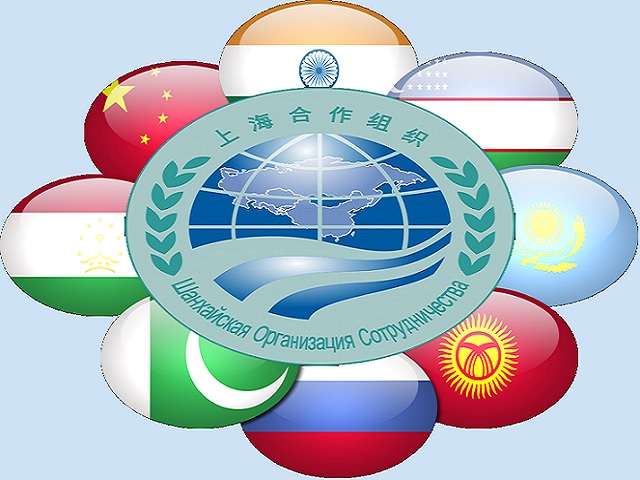
Op/Ed by Chris Devonshire-Ellis
- Combatting regional terrorism discussed in depth
- Proposals to develop SWIFT alternatives and dedollarize
- Linking the Belt and Road Initiative with the Eurasian Economic Union
Members of the Shanghai Cooperation Organisation (SCO) met this week in an event virtually hosted by India. This meeting is at Prime Ministerial level or above, and included Chinese Premier Li Keqiang, Russian Prime Minister Mikhail Mishustin, as well as the Prime Ministers of Kyrgyzstan, Tajikistan, Uzbekistan, and Kazakhstan, in addition to the host, Indian Vice President Venkaiah Naidu and Pakistan Secretary for Foreign Affairs Andleeb Abbas.
Heads of SCO observer nations Afghanistan, Belarus, Iran and Mongolia also attended as did the dialogue partners Armenia, Azerbaijan, Cambodia, Nepal, Sri Lanka, Turkey along with special guest Turkmenistan.
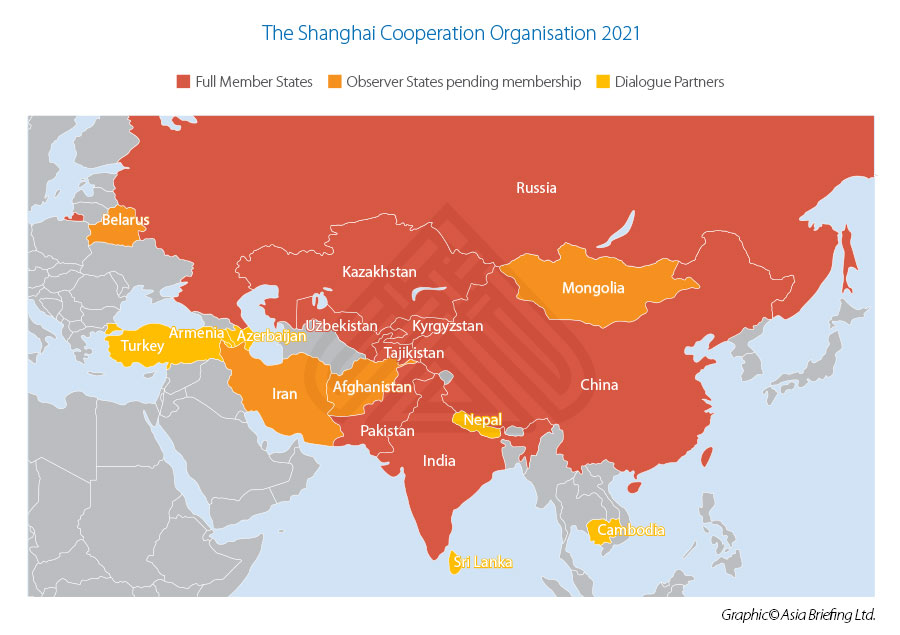
The meeting is an effective Full Members Ministerial level update of the SCO annual conference held on November 10. Our report on that meeting can be read here.
Indian Vice President Venkaiah Naidu comments
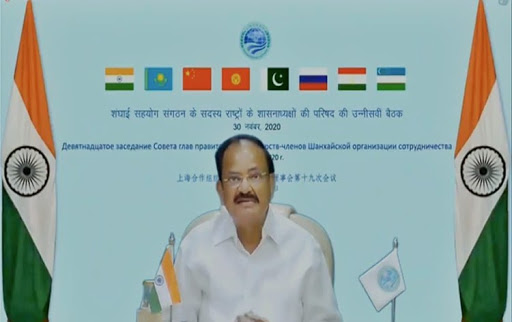
Indian VP Naidu said that the most important challenge faced by countries belonging to the SCO is cross-border terrorism, describing it as “truly the enemy of humanity. It is a scourge we need to collectively combat. We remain concerned about threats emerging from ungoverned spaces and are particularly concerned about states that leverage terrorism as an instrument of state policy. Such an approach is entirely against the spirit and ideals and the Charter of the Shanghai Cooperation Organization.” said Naidu, in an apparent reference to Pakistan.
In a reference to China, Naidu said: “It is unfortunate to note that there have been attempts to deliberately bring bilateral issues into the SCO and blatantly violate the well-established principles and norms of the SCO Charter safeguarding the sovereignty and territorial integrity of SCO Member States. Such acts are counterproductive to the spirit of consensus and cooperation that define the SCO as an organization,” he added.
“India has particularly focused on creating three new pillars of cooperation: Startups and Innovation, Science and Technology and Traditional Medicine, and also proposed many other concrete initiatives,” the Ministry of External Affairs said in a statement, adding India has offered to create and chair a new special working group on startups and innovation and to set up a new expert working group on cooperation in traditional medicine.
Chinese Premier Li Keqiang comments
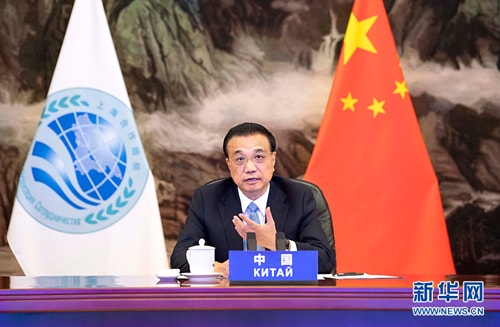
Li Keqiang asked for the SCO nations to proactively create new drivers of growth in the digital economy, promote high-quality development and pursue a green economic recovery.
He urged better alignment between the Belt and Road Initiative and the development strategies of various member countries to promote high-quality connectivity in the region, saying that it is important to improve the level of trade and investment liberalization and facilitation in the region. The SCO must work to ensure that industry and supply chains are unimpeded and to establish a network of fast lanes for essential travel within the region, he said.
The leading role of scientific and technological innovation must be amplified so as to spawn the growth of more new industries and business models, he said.
Going forward, Li said, the organization must prioritize efforts to create a safe and stable development environment and continue to conduct joint drills on counterterrorism and cooperation on eradicating extremism. The SCO must bolster its governance capacity on data security and safeguard regional peace and stability. China supports the national reconciliation process of Afghanistan and will help the nation achieve stability and development at an early date, he added.
Li urged the organization to explore new room for cooperation in areas such as health, culture and sports and to expedite cooperation in the research and development of vaccines and pharmaceuticals. He reiterated China’s pledge to make its COVID-19 vaccines a global public good once they are ready for use so as to contribute to the availability and affordability of vaccination. China will continue to pursue two-way opening-up and investment, develop an open world economy and ensure the smooth flow of global industry and supply chains, he said.
The country will unwaveringly follow a path of peaceful development, adhere to an opening-up strategy featuring win-win outcomes and remain committed to sharing opportunities with the world during its own development, he added.
Russian Prime Minister Mikhail Mishustin comments
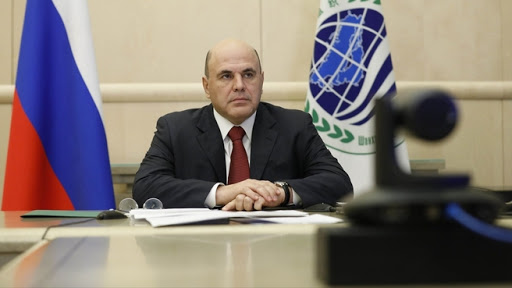
Speaking after a debriefing from Russian PM Mishustin, Russia’s Foreign Minister Sergey Lavrov has stated that Russia and the SCO should develop their own settlement systems that will not depend on Western payment mechanisms, stating that the SWIFT payment system is being used to aggravate the situation, to issue ultimatums and threats. When asked what steps Russia and Belarus will take if they are disconnected from the SWIFT system he said: “The conclusion is very simple. We need to develop our own mechanisms that will not preserve the dependence of our countries on the West, especially since the West has repeatedly proved its unreliability as a partner. Relying on multilateral instruments that are entirely in the hands of the West, under the control of Western entities, is no longer reliable.
I would like to note that discussions about the transition to our own settlement systems have been going on not only in theory, but also in the practical terms both in Russia, and within the Eurasian Economic Union, and the Shanghai Cooperation Organization. The topic is quite relevant, and we will definitely strive for its implementation, regardless of how the SWIFT issue is resolved and what next steps our Western colleagues will take.”
Joint Communique Issued
Leaders of the SCO member states signed a joint communique and approved a raft of cooperation agreements covering areas such as trade and the economy, with all parties at the meeting also agreed to jointly fight various forms of terrorism, safeguard the peace and stability of the region and bolster people-to-people exchanges in areas regarding youth and culture. A proposal to link the SCO to the Belt & Road Initiative was signed off by all members bar India, which regards part of the China-Pakistan controlled areas and the CPEC projects as infringing on its sovereign territory.
Otherwise the communique confirmed their backing for the Belt & Road Initiative, with Kazakhstan, Kyrgyzstan, Pakistan, Russia, Tajikistan and Uzbekistan stating that the continuing combined completion of the initiative, and that they would collectively make efforts to continue the building of connectivity between the Eurasian Economic Union (EAEU) and the Belt & Road Initiative. The Eurasian Economic Union is a Free Trade bloc that includes Armenia, Belarus, Kazakhstan, Kyrgyzstan and Russia. China has signed a non-preferential Free Trade Agreement with the EAEU and India is currently negotiating one. Several ASEAN nations are also discussing FTA with the EAEU while Singapore and Vietnam have already agreed deals.
SCO member countries confirmed the significance of using the potentials of the countries of the area, other international organizations and joint relationships to shape a space of broad, open, equally helpful and equal relations in Eurasia in agreement with international law, mainly the principles of equality, joint respect and consideration of national interests.
The complete communique can be read here.
Summary
Regional Terrorism
India as host was somewhat belligerent over outstanding territorial issues, which have been rumbling on with both China and Pakistan for nearly 60 years now. If the SCO is to survive and prosper, then the need for this to be resolved is a pressing issue. China is also asking for resolutions, in statements that appeared aimed at Pakistan’s responsibility to look for ways to settle tribal unrest in its own border Provinces and in Afghanistan. China has been a major investor in Pakistan, involving many billions of dollars, with the mindset that improved infrastructure and wealth creation will settle the region down.
China’s investment in Pakistan and its desire for Afghanistan to be rehabilitated signal an increasing impatience with regional Muslim fundamentalism. China has its own issues in Xinjiang and has borders with Afghanistan and Pakistan. It remains to be seen whether China could yet be drawn into military confrontation in an area that has in the past, defeated British, Russian and American attempts to deal adequately solve the problem. The biggest issue for China, the SCO and indeed a large part of the Belt & Road Initiative to resolve is Muslim fundamentalism. All SCO parties have a vested interest in this; yet other regional disputes run the risk of distraction from the larger problem.
Financial Integration & Dedollarization
The United States may have made short term gains with its use of sanctions and associated manipulation of the global SWIFT payment network, but in doing so may very well have ushered in its longer term demise. SWIFT was designed and promoted as being for global trade use, and member countries agreed to this. What has happened since has long been regarded as a betrayal. Russia’s call to develop alternative payment systems is echoed by China, and while India isn’t in the American spotlight yet as regards sanctions, it will be when it becomes more competitive.
Russia has been developing its SPFS alternative payment network, while China has its Blockchain based Services Network (BSN). Both countries are long down the road of developing their respective digital currencies, China’s Digital Yuan and Russia’s Digital Ruble. The BRICS Grouping of Brazil, Russia, India, China and South Africa are already developing a so called ‘BRICSpay’ transactional system and is already settling trade in their own currencies rather than USD. Russia’s reminders of this are to encourage other SCO members to accelerate progress.
Regional Trade
Statements concerning linking the Belt & Road Initiative with the EAEU have been made before, with China signing off a Free Trade deal with the EAEU in 2018 but stopping short of actually making any tariff concessions. Negotiations are, I am told, continuing. The issue was also discussed at the previous SCO meetings and the recent APEC summit. Both China and Russia have committed to doubling bilateral trade; partially in response to unhappiness with the terms the United States has inflicted on them both: sanctions and tariff wars. The fact that the linking of the BRI with the EAEU was mentioned yet again suggests that negotiations are progressing, albeit slowly. Tariff reductions between China and the EAEU will have a significant impact on regional trade. How long negotiations need to reach conclusion remains unknown – but the hints are there.
Those negotiations may also take into consideration India – it pulled out of the subsequently and recently signed RCEP agreement and is looking at a Free Trade deal with the EAEU itself. It makes sense – the Eurasian bloc is less likely to impact on India’s nervous and self-protective domestic companies while being seen to open up markets elsewhere. It would also be a political coup for Prime Minister Modi. With the next Indian elections due in spring 2024, an Indian FTA with the EAEU could conceivably occur next year (2021) – allowing time for bumps to be ironed out and benefits to reach corporate balance sheets.
Related Reading
- BRICS Annual Summit November 2020 – Review
- SCO Moscow Summit: China & India To Stand Down Over Ladakh, Seven Cooperation Points, Talks About Post-Covid Economic Recovery
About Us
Silk Road Briefing is written by Dezan Shira & Associates. The firm has 28 offices throughout Asia, and assists foreign investors into the region. For strategic advisory and business intelligence issues please contact the firm at silkroad@dezshira.com or visit www.dezshira.com





